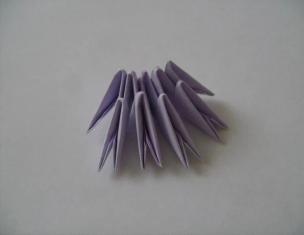From this article you will learn about the use of Pimafucin during pregnancy in the 1st, 2nd and 3rd trimester. This is quite a popular and well-known remedy for women.
Article publication date: 10/29/2017
Article updated date: November 28, 2018
Pimafucin is the trade name, that is, the brand under which the joint Dutch-Japanese company Astellas produces the medicinal substance natamycin. Pimafucin is produced by the company in several dosage forms - vaginal suppositories (or suppositories), cream for external or internal (vaginal) use, tablets for oral administration. The drug is used mainly to treat thrush (candidiasis).
Today we will mainly talk about the vaginal form - suppositories or suppositories. The company produces them in quantities of three or six candles per package. The number of suppositories and the regimen for taking them is prescribed by a gynecologist after examination and confirmation of the diagnosis.

The product entered the market relatively recently, but has managed to gain the trust of gynecologists, since it has a number of undoubted advantages that make it possible to use Pimafucin in different categories of patients, including expectant mothers. Pregnant women are a complex group of patients for whom it is quite difficult to prescribe treatment, because almost all medications in one way or another affect the growing fetus. Why is the product ideal for pregnant women?
Mechanism of action of the drug
Natamycin, the active ingredient of the drug Pimafucin, is a relatively new antifungal agent to which fungi have not yet developed resistance and defense mechanisms. The drug is a pure antimycotic or antifungal agent - that is, it inhibits the growth and reproduction of only fungi, destroying their cell membranes, without touching viruses or bacteria. That is why you need to clearly know the nature of vulvovaginitis and related complaints - with pure candidiasis, Pimafucin is very effective, with a bacterial or mixed process - the effect will be insignificant.

The chemical formula of the active substance natamycin, which is obtained by isolating from cultures of various bacteria - streptomyces (Streptomyces natalensis). These bacteria are shown in the photo (view under a microscope)
The main advantage of natamycin is that the substance is practically not absorbed from the stomach and intestines when taken orally and is also not absorbed anywhere from the vagina or from the surface of the skin when applied externally. This means that the drug molecules do not enter the mother’s systemic bloodstream and do not pass from her through the placenta to the fetus. Thus, the drug is completely safe for the growing fetus and can be used at any stage of pregnancy, even in the most delicate first trimester. The drug has the same safety profile, proven in studies on animals and humans, both when used vaginally in suppositories and when taken orally in tablet form.
Indications and contraindications
Let us designate the diseases for which the drug is effective:
Suppositories are indicated for acute and chronic vulvovaginitis of a fungal nature - usually a candidiasis infection.
The cream can be used for lesions of the external genitalia in both women and men. The cream is also used to treat fungal infections of the skin, nails, and fungal infections of the outer ear.
Tablets are indicated for intestinal candidiasis, as well as as an additional therapy for persistent, often recurrent lesions of the genital organs.
The drug has also won the approval of doctors and patients because it has virtually no contraindications for use. Individual intolerance and allergic reactions- the only restrictions on its use.

Rarely, but individual intolerance and an allergic reaction are possible when treated with Pimafucin
Advantages and disadvantages of the drug Pimafucin
Let's start with positive aspects drug:
- It is available because it is dispensed from pharmacies without a doctor’s prescription, it is included in the list of mandatory drugs, so it is available in almost every pharmacy.
- Effective for vaginal candidiasis in the form of suppositories or cream, as well as for intestinal candidiasis when taken orally. The medicine also acts against a wide range of other fungi and dermatophytes.
- Approved for use in children, pregnant women and nursing mothers, since it is not absorbed into the bloodstream and does not have negative effects on the fetus or infant.
- Easy to use, usually the course of treatment with suppositories is from three to six days, and suppositories need to be inserted into the vagina once a day.
- Well tolerated, causes virtually no side effects. A rare exception is local irritation, itching and an allergic reaction.
- It acts quickly, symptom relief occurs within the first day after the administration of the first suppository.
Let's also list the disadvantages that each has. medicine:
- The medicine is effective only against fungi, without having any effect on bacteria, viruses and protozoa, so mixed colpitis cannot be cured with Pimafucin suppositories.
- The drug is quite expensive. The price for a course of suppositories is on average 10–15 dollars, depending on the number of suppositories in the package.
- The drug has few analogues or generics, which means it is not always possible to find a more affordable replacement. On at the moment There are only three generics of Pimafucin - Belarusian Natacin, Russian Ecofucin and Moldovan Primafungin.
How to take Pimafucin
Any treatment, especially during pregnancy, should be prescribed by the attending physician after examination and diagnosis. Here are 5 basic principles for using Pimafucin suppositories:
Suppositories are used to treat acute or chronic recurrent candidiasis of the genital organs in women. For concomitant treatment of a sexual partner, you can use a cream of the same name.
The dosage regimen for an acute uncomplicated episode of thrush is three suppositories, but in case of a recurrent course, the course is extended to 6 or more suppositories, and is sometimes supplemented by taking Pimafucin tablets orally.
Pimafucin during pregnancy is taken according to general rules. Dosage regimens are the same for pregnant women in all three trimesters, lactating women and ordinary patients.
The suppositories are inserted into the vagina as deeply as possible, preferably at night, so that the suppository that melts in the warmth does not leak out of the vagina.
It is very important to complete the course of treatment prescribed by your doctor, regardless of whether your health has improved or whether your complaints have disappeared. In case of unauthorized interruption of the course, the fungal infection may become chronic and the fungus may develop drug resistance.
Owner and responsible for the site and content: Afinogenov Alexey.
One of the few drugs approved for the treatment of thrush during pregnancy is Pimafucin. After all, the drugs prescribed to the expectant mother must not only be effective, but also safe for the fetus. This tool is exactly that. Let's look at the instructions for using Pimafucin during pregnancy, indications, contraindications, analogues and reviews from patients.
General information about the drug
The main active ingredient of Pimafucin is natamycin. This substance belongs to macrolide antibiotics and is effective against many pathogenic fungi. The causative agents of candidiasis are most sensitive to its effects.
Different forms of the drug additionally contain auxiliary components. They will be discussed in more detail below.
The main advantage of Pimafucin during pregnancy is that the drug, even in tablet form, is practically not absorbed into the blood. This means that it is completely safe for the fetus and does not affect its development.
Forms of release of the drug
There are three main forms of release of the drug:
- Pills. They are covered with a white shell, which protects the product from the effects of stomach enzymes and dissolves only after entering the intestines. Thanks to this, the drug can be used when the lower parts of the digestive system are affected by fungus. In addition to the main active component, Pimafucin tablets contain additional substances such as beeswax, potato starch, lactose, sucrose, talc, gelatin, kaolin and others.
- Cream. It has a white or slightly yellowish tint. Intended for topical use. The composition of the cream "Pimafucin" includes natamycin and auxiliary components: wax, water, cetyl stearyl alcohol, ester of oleic acid and decyl alcohol and others.
- Vaginal suppositories. During pregnancy, Pimafucin suppositories are most often prescribed. They have white with a yellow or brown tint. In addition to the active substance, suppositories include sorbitol, solid fat and others.
Indications for use of the drug
The use of Pimafucin during pregnancy may be necessary in case of the development of diseases caused by the proliferation of fungi. It is usually prescribed for:
- vaginal candidiasis;
- vaginitis;
- vulvovaginitis;
- fungal infections of the mucous membranes, skin, outer and middle ears.

These pathologies cause itching, burning, discomfort and adversely affect the course of pregnancy. In particularly severe cases, candidiasis (thrush) can lead to thinning of the membranes of the fetus, resulting in their premature rupture.
In addition, the use of Pimafucin suppositories during pregnancy can protect the child from contracting thrush during childbirth. Therefore, it is often prescribed for preventive purposes in recent weeks.
Contraindications to the use of the drug
Despite the fact that natamycin is a broad-spectrum antibiotic, the use of Pimafucin during pregnancy is contraindicated only in the presence of individual intolerance to the components of the drug. In other cases, there is no reason to abandon this product and replace it with analogues.
Side effects
In the instructions for use of Pimafucin suppositories during pregnancy, as well as other forms of the drug, the manufacturer warns about the possible occurrence of some side effects:
- irritation of mucous membranes;
- itching;
- nausea and vomiting;
- burning;
- digestive disorders (diarrhea, constipation);
- swelling.

As a rule, unpleasant symptoms disappear when you stop taking the medication. If this does not happen, you need to seek help from specialists. You will also need to choose another remedy and complete the course of therapy prescribed by the gynecologist.
Use of the drug in the first trimester of pregnancy
Unfortunately, infections cannot be treated without pharmacological drugs. The same applies to thrush. For complete recovery, douching or taking decoctions of medicinal plants will not be enough. After all, the main goal that needs to be achieved is getting rid of the pathogen.
The use of Pimafucin during pregnancy in the 1st trimester is not prohibited. Even taking into account the fact that the active substances are absorbed in small quantities into the mother’s blood and penetrate to the child, this will in no way affect its development. During this period, it is best to give up pills and use suppositories or Pimafucin cream.
Use of the drug in the second trimester of pregnancy
In the second trimester, the list of permitted medications is quite large, and Pimafucin is also one of them. From 14 to 26 weeks, the drug can be used in any convenient form, including tablets.

During this period of pregnancy, the placenta is already fully formed, which reliably protects the baby. If there is no effect from using Pimafucin, the doctor can replace it with other, more potent drugs.
Use of the drug in the third trimester
According to the instructions, Pimafucin is also not prohibited for use during pregnancy in the third trimester. It is usually prescribed for mild to moderate thrush. Severe forms of the disease will require the use of other, more strong drugs(“Terzhinan”, “Viferon”, “Gino-Pevaril” and so on).
In the third trimester, the doctor may prescribe the use of Pimafucin for preventive purposes. This is especially true in cases where a pregnant woman has already encountered thrush for more than early stages. In this way, it will be possible to protect the expectant mother from the recurrence of pathology, and her baby from infection during passage through the birth canal.
Doses and duration of therapy
The required number of uses of Pimafucin during pregnancy depends on the severity of the disease. Therefore, we will consider only standard dosages, which can be changed by the doctor on an individual basis.
- Instructions for the use of Pimafucin tablets during pregnancy. Typically, this form of the drug is used to treat chronic candidiasis of the mucous membranes and skin, as well as for fungal infections in the intestines. In this case, the course of treatment will last about a week, and the patient will have to take 1 tablet 4 times a day.
- Instructions for Pimafucin suppositories during pregnancy. Suppositories are used to treat thrush, vulvovaginitis and vulvitis. Only 1 candle per day is needed. The duration of the course will be within 5-7 days. At the same time, there are some features of the use of Pimafucin suppositories. They need to be inserted into the vagina while lying down, done at night before bed. Do not be alarmed if, after using this form of the drug, the next day a pregnant woman discovers unusual discharge. This is a candle that has dissolved in the vagina and gradually comes out.
- Instructions for using Pimafucin cream during pregnancy. It is most convenient to use it to treat fungal diseases of the nails and skin. Apply a thin layer of ointment to the affected areas up to 4 times a day. The duration of treatment will depend on how quickly the symptoms of the disease disappear. In this case, the affected area will need to be smeared with cream for several more days after the signs of the disease have disappeared.

Despite the fact that Pimafucin is considered a safe drug, it can only be used as prescribed by a doctor. The specialist will first have to assess the severity of the disease, calculate the required dosage and duration of therapy. It is very important to follow all his recommendations!
Cost of the drug
The cost of Pimafucin may vary slightly depending on the pharmacy and region of residence. Average prices for the product are:
- Candles (3 pieces per package) - 250-300 rubles.
- Candles (6 pieces per package) - 500-700 rubles.
- Tablets - 410-490 rubles.
- Cream - 270-300 rubles.
As you can see, the drug has a relatively low cost. What about its effectiveness? Reviews of patients who have undergone treatment with Pimafucin will tell you about this.
During pregnancy, a woman's immunity tends to decrease. This is provided by nature so that the mother’s body does not reject her fetus as foreign. However, this condition leads to greater susceptibility to various infections. Especially often, expectant mothers are worried about thrush, or candidiasis. Some women first encounter this disease during pregnancy. Therefore, the question often arises of how to treat candidiasis during pregnancy. Pimafucin is often the drug of choice in the treatment of thrush. Let's look at what this medicine is, when it is prescribed and how Pimafucin should be taken during pregnancy.
Use of Pimafucin during pregnancy
Pimafucin is an antifungal drug. Its active substance is natamycin, a polyene antibiotic from the macrolide series, which has a wide range of applications. Providing a fungicidal effect, this substance binds particles of the cell membrane of fungal cells, thus disrupting its integrity and functioning, which contributes to their death.
As indicated in the instructions, Pimafucin is not prohibited for use during pregnancy. This medicine does not have any adverse effects on the baby in the womb. It is practically not absorbed from the surface of the skin and mucous membranes, as well as from the gastrointestinal tract, so it does not enter the bloodstream and cannot penetrate the placenta to the child.
Indications for the use of Pimafucin during pregnancy are the following infections caused by fungi of the genus Candida:
- Vulvitis;
- Vaginitis;
- Vulvovaginitis.
Instructions for Pimafucin during pregnancy
This drug is available in three dosage forms - vaginal suppositories, cream and tablets. According to reviews, Pimafucin during pregnancy is most often used in the form of suppositories, although other forms are also sometimes prescribed. In each specific case, the doctor determines the dosage, frequency of administration and duration of treatment with the medicine.
Usually, Pimafucin suppositories are used during pregnancy, 1 pc. once a day at night. The suppository, previously freed from the contour cell, is inserted deep into the vagina in a supine position. The course of treatment is 3-6 days.
In case of severe disease, in addition to suppositories, the doctor may prescribe Pimafucin tablets. As a rule, in this case, take 1 tablet 3-4 times a day. The duration of the course of therapy is 10-20 days.
Pimafucin cream is applied to the affected areas of the mucosa 1-2 times a day. It is usually prescribed as an adjunct to therapy with suppositories or tablets. The duration of treatment is determined by the doctor.
Pimafucin tablets, cream and suppositories during pregnancy can cause side effects in the form of an allergic reaction. Thus, the use of suppositories and cream may be accompanied by swelling of the mucous membrane, a burning sensation and itching at the injection site. Taking Pimafucin tablets sometimes leads to nausea, vomiting and stool upset. If any of these symptoms occur, stop using the medicine and report the problem to your doctor.
The only contraindication to the use of Pimafucin is increased sensitivity organism to its components.
Opinions about the effectiveness of Pimafucin differ. This drug is considered a somewhat outdated cure for thrush. As noted in the reviews, Pimafucin does not help all women during pregnancy. Some of them manage to defeat candidiasis, while others do not notice any improvement when taking it. There are also patients who indicate a worsening of their condition when taking Pimafucin. In addition, if most doctors consider this drug absolutely safe for expectant mother and her fetus, some still do not recommend it to women during this period.
Pimafucin is used during pregnancy due to its lower toxicity compared to other drugs for candidiasis. As already mentioned, when carrying a baby, it is preferable to use suppositories. If after long-term use of the drug there is no improvement, you must inform your doctor, who will select another remedy.
Text: Galina Goncharuk
4.85 4.9 out of 5 (27 votes)
The latter disease is better known as thrush. It is known that normal physiological changes and hormonal changes A woman’s body during pregnancy contributes to the development of thrush, and it is observed in almost half of pregnant women. Therefore, Pimafucin during pregnancy is in most cases prescribed for the treatment of this particular disease.
Contraindications and side effects
Pimafucin should not be used by pregnant women if allergic reactions occur. But, as practice shows, such cases are quite rare.
Also, when using the drug, side effects may occur, which should subside over time. Treatment with tablets can cause nausea, vomiting, diarrhea in a pregnant woman, and with suppositories and cream - burning, itching, redness, and slight swelling at the site of application.
The occurrence of these reactions is not a reason to discontinue the drug. However, if they cause significant discomfort, the pregnant woman should inform the doctor about them and clarify the possibility of using Pimafucin further.
Effect on the pregnant woman and fetus
At the moment, Pimafucin is considered the most safe means for the treatment of thrush in pregnant women, since no negative effects of the drug on the pregnant woman and the embryo (fetus) were detected.
When entering the body, Pimafucin is practically not absorbed into the blood, therefore it does not affect the condition and development of the embryo (fetus). Therefore, it can be used at any stage of pregnancy. At the same time, preference is given to treatment with suppositories and creams rather than tablets.
Dosage and application features
The course of treatment with Pimafucin during pregnancy is determined by the doctor in each specific case. Usually, for mild thrush, pregnant women are prescribed 1 suppository (100 mg) at night for 3-6 days. The suppositories are inserted deep into the vagina in a lying position.
In severe cases, longer treatment with suppositories together with tablets is possible: 1 tablet (100 mg) 4 times a day for 7-10 days.
Reviews about the drug
Judging by the reviews, Pimafucin helped some, but not others. Thus, some pregnant women felt better after taking several suppositories. Others needed longer treatment, and for others it did not help at all, or the effect of using the drug only lasted for a few days, and then the thrush reappeared.
It is worth noting that none of the pregnant women mentioned allergies or side effects. When using suppositories, the only concern was increased vaginal discharge, which was the remains of suppositories.
Also, some doctors consider Pimafucin to be an outdated and ineffective drug and do not prescribe it to pregnant women.
What to replace
In addition to Pimafucin, there are other drugs for the treatment of thrush during pregnancy. The most popular of them:
- Sertaconazole, Econazole, Zalain - can be used only in cases where the benefit of taking them outweighs the risk;
- Livarol, Clotrimazole, Gino-Pevaril, Neo-Penotran - cannot be used in the 1st trimester, but in the 2nd and 3rd with a predominance of benefit over risk;
- Terzhinan - can be used from the 2nd trimester, in the 1st - if the benefit outweighs the risk;
- Gynoflor, Normoflor - are allowed throughout pregnancy, they are complexes of lactobacilli to normalize the vaginal microflora, recommended for the complex treatment of thrush.
Thus, none of the presented drugs is completely safe for a pregnant woman and the embryo (fetus), and bacterial complexes, if used separately and not in combination with other antifungal drugs, as a rule, are not sufficiently effective.
To treat thrush, pregnant women should not forget about other non-drug methods, and these are:
- a diet that limits the consumption of baked goods and sweets and includes products with bifidobacteria (kefir, yogurt), vegetables;
- genital hygiene aimed at eliminating favorable conditions for the development of fungi (removing excess moisture after washing, using cotton panties);
- baths with herbal infusions (chamomile, calendula).
All these measures, unfortunately, will not replace the pregnant woman taking medications, but will contribute to a speedy recovery.
Drug price
Pimafucin belongs to the drugs of the middle price category. Its price depends on the form of release and quantity in the package.
Estimated cost of Pimafucin in pharmacies:
- in the form of a cream 2% 30 g - 250-300 rubles;
- in the form of suppositories 100 mg No. 3 - 270-310 rubles;
- in the form of suppositories 100 mg No. 6 - 490-620 rubles;
- in the form of tablets 100 mg No. 20 - 450-550 rubles.









